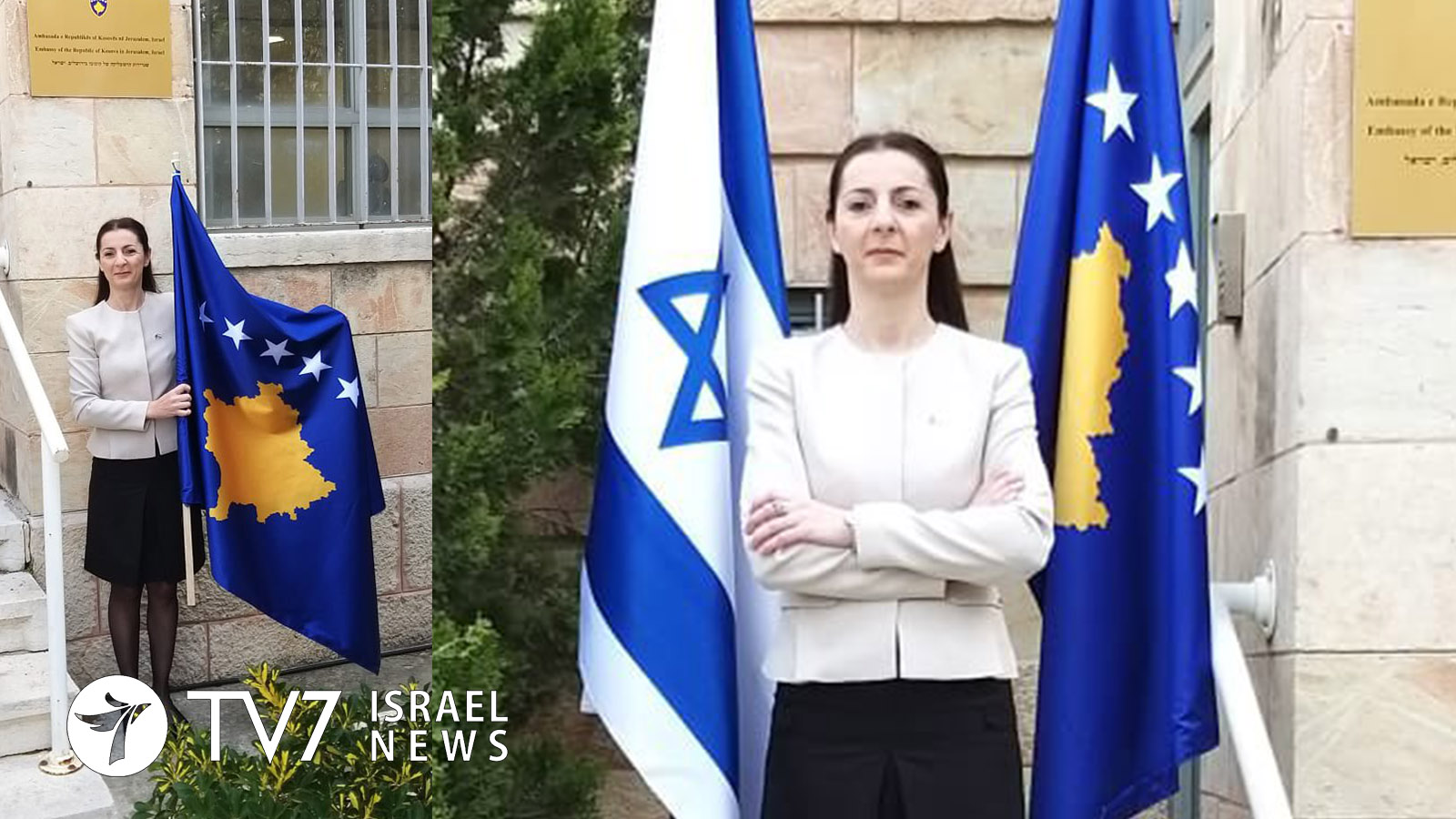There has been a flurry of exciting diplomatic activity in Jerusalem.
Kosovo opened its embassy to Israel in Jerusalem on Sunday, following through on the commitment it made last year.
The first Kosovar Ambassador Ines Demiri posted photos on Twitter of herself standing alongside both nations flags outside the new embassy with the message: “A truly proud and historic moment for Kosovo-Israel relations. The Republic of Kosovo today officially opened its Embassy in Jerusalem!
The greatest honor of my life is to have this opportunity to open the Embassy and proudly serve my country in Israel.”
Israel sees its new ties with Kosovo as part of its broader normalization with Arab and Muslim countries under agreements sponsored by former United States President Donald Trump. The move came in reciprocity for Israel’s recognition of Kosovo, in a major victory for Pristina’s efforts to gain global acknowledgement of its declaration of independence in 2008 following a war with Serbia in the 1990s.
Kosovo’s Ministry of Foreign Affairs also posted photos of its new embassy on Twitter, saying that “the pledge given in the Oval Office today is finally fulfilled.”
The Muslim-majority country officially joins the United States and Guatemala to recognize Jerusalem as the capital of Israel, in a city whose status is at the heart of the conflict with the Palestinians.
Palestine Liberation Organization Executive Committee Wasel Abu Youssef said the opening of Kosovo’s embassy in Jerusalem contradicts United Nations resolutions and aimed to “weaken the Palestinian cause.”
The Palestinian Authority and the Arab League on Saturday furiously condemned the Czech Republic’s opening of a diplomatic office in Jerusalem as a violation of international law.
The inauguration was conducted by Czech Prime Minister Andrej Babiš, alongside Israeli Prime Minister Benjamin Netanyahu and visiting-counterpart Viktor Orbán from Hungary. Babiš described Israel as a “strategic partner” and hailed the new office as a “milestone in our co-operation.” The leaders went on to hold a trilateral summit in Jerusalem on advancing cooperation in the research, development and production of coronavirus vaccines.
The Palestinian Foreign Ministry called Prague’s move “a blatant attack on the Palestinian people and their rights, a flagrant violation of international law,” and said it would harm peace prospects.
In Cairo, Arab League Secretary-General Ahmed Aboul Gheit released a statement proclaiming that, “The legal status of Jerusalem will be affected by the decision of one country or another to open representative offices. East Jerusalem is an occupied land under the International law.”
The Czech Foreign Ministry responded that the move was aimed at strengthening Prague’s strategic partnership with Israel and to improve services for Czech citizens in the city, but that it would have “no impact on the will of the Czech Republic to further develop political and economic relations with the Palestinian Authority.”
Israel reunified Jerusalem after capturing it along with the West Bank and Gaza in the 1967 Six Day War, and regards the city as its eternal and indivisible capital. The Palestinians demand the eastern side of the city as the capital of a future independent state.
The Czech Republic was named in an International Criminal Court pre-trial decision last month as one of the countries supporting Israel’s argument that the court should not investigate war crimes in the Palestinian territories.
Prime Minister Babiš said on Thursday that “the Czech Republic doesn’t consider Palestine to be a state, therefore the court has no jurisdiction over it.”
